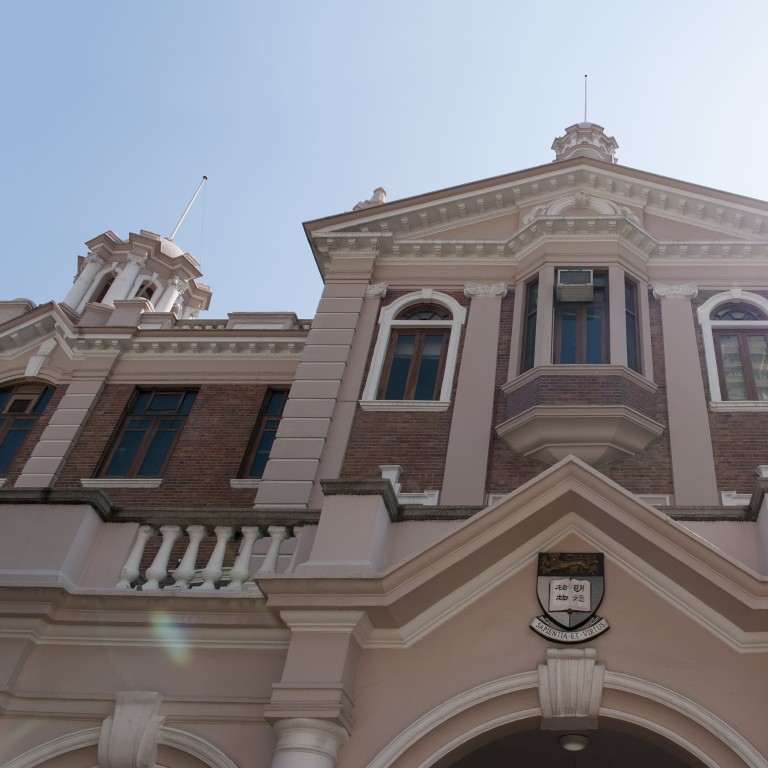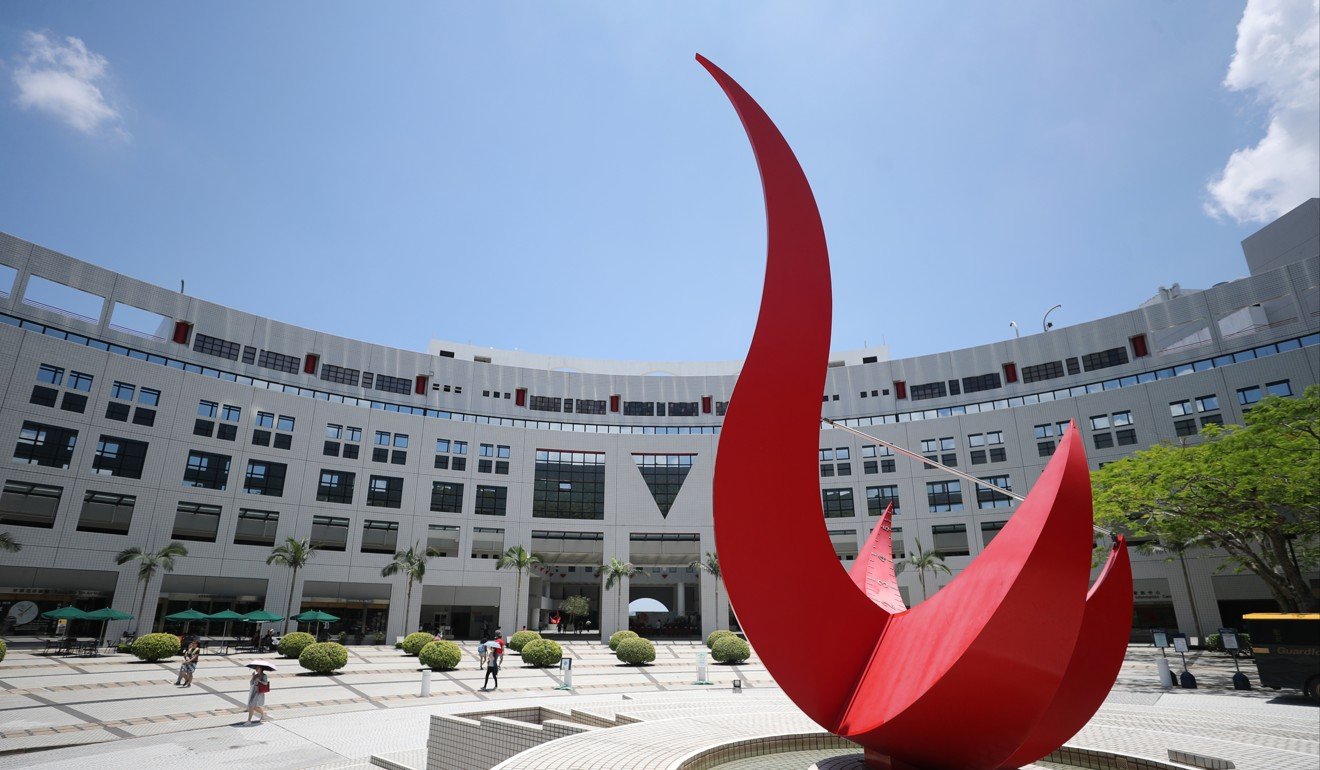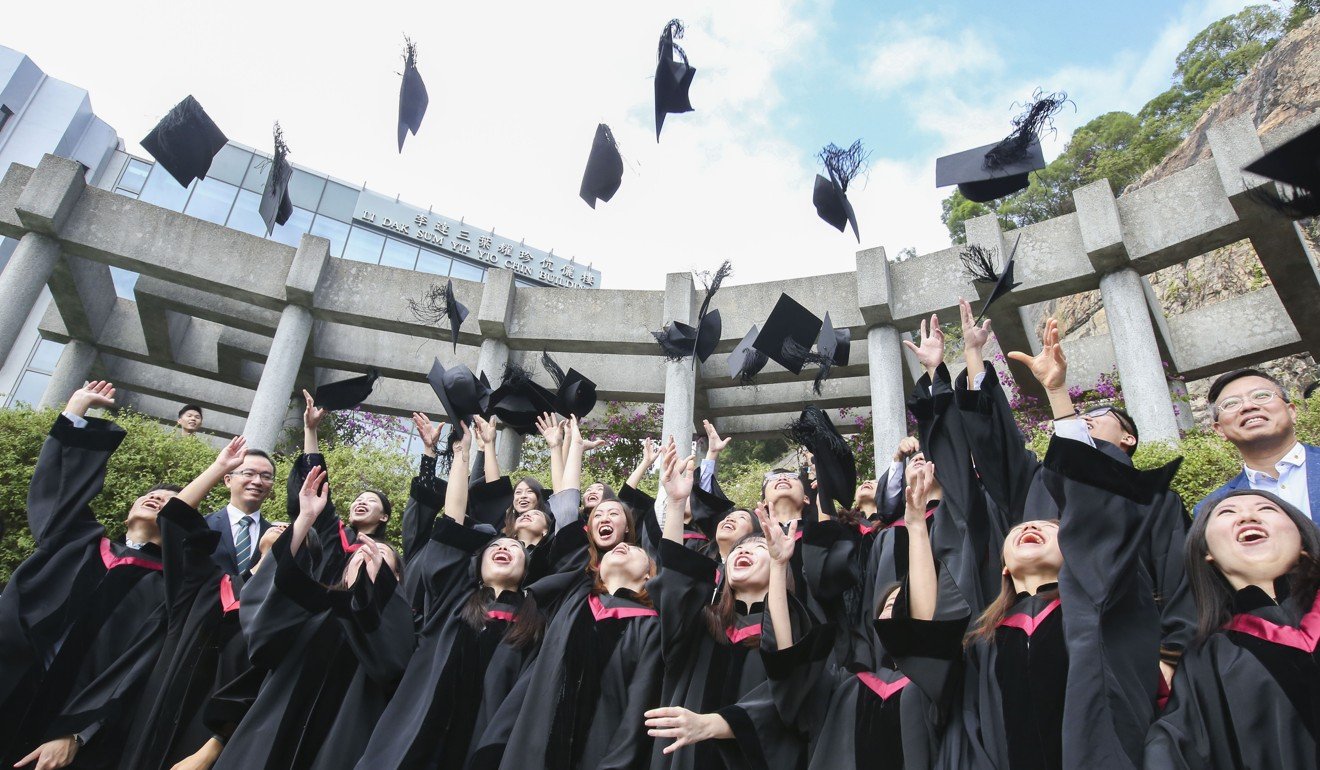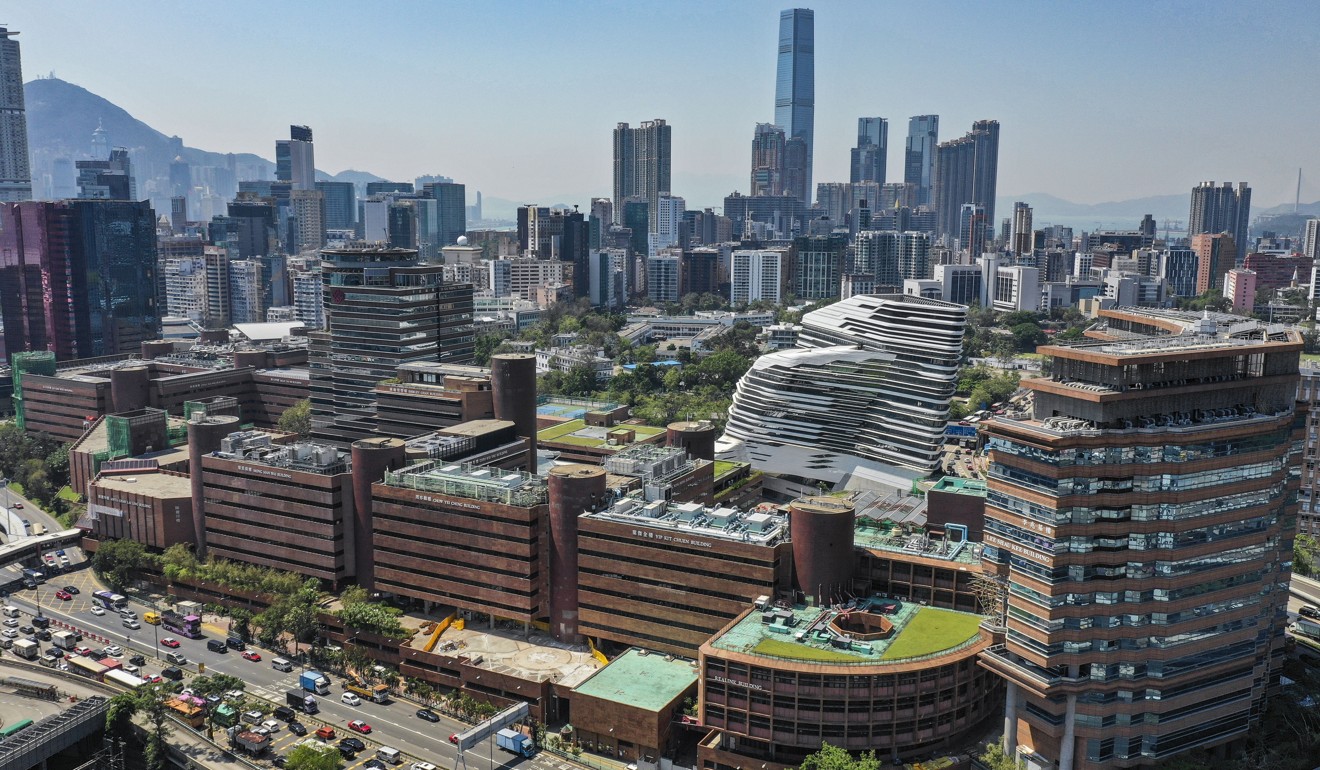
Five Hong Kong universities – led by University of Hong Kong – ranked among the world’s 100 best tertiary institutions
- University of Hong Kong ranks 25th, followed by University of Science and Technology, Chinese University, CityU and PolyU
- Survey rates 1,000 universities from 82 countries and regions
Five of Hong Kong’s universities have been ranked among the world’s top 100 tertiary institutions – but the same schools were urged to do more to polish their graduates’ “soft skills” to boost their careers, according to a report released on Wednesday.
The QS World University Rankings 2020 rated the University of Hong Kong (HKU) as the city’s best, giving it 25th place among the 1,000 institutions involved in the survey. HKU, the oldest university in the city, also ranked 25th in last year’s global report.
The University of Science and Technology (HKUST) jumped five places to 32nd, and Chinese University (CUHK) was 46th – up from 49th in the 2019 report.

The ranking of 1,000 tertiary institutions from 82 countries and regions was compiled by QS Quacquarelli Symonds, a London-based higher education consultancy. The results were based on surveys of 94,000 academics, 44,000 hiring managers and analyses of 11.8 million research papers and 100 million citations.
The universities were measured on academic standing, graduate employability, student-staff ratio, research impact and internationalisation.
The Massachusetts Institute of Technology was named the world’s best university – for the eighth consecutive year. Stanford University was second, followed by Harvard University.
Singapore’s Nanyang Technological University and the National University of Singapore tied for 11th place in the survey, scoring the highest ranking for universities in Asia. Tsinghua University in mainland China ranked 16th, up one place from a year ago.

“HKU, HKUST, and CUHK have all suffered small drops in their ‘employer reputation’ performance,” Sowter said.
“It is therefore crucial that your universities work hard to ensure that they cultivate graduates with the soft skills that make them highly employable.”
He cited a 2016 survey by the Hong Kong Education Bureau which pointed to poor problem-solving skills, work attitude and interpersonal skills among graduates.
According to the QS report, HKU, HKUST, and CUHK scored 82.6, 71.3, and 61.5 out of 100 in “employer reputation” respectively. These compared with their respective scores of 83.7, 73, and 62.7 in the report last year.
CityU scored 41.3 in “employer reputation” this year, up from 39.2. And the score of PolyU was 43.7 this year, up from 39.3.
But Ng Po-shing, a guidance consultant at the student counselling group Hok Yau Club, defended local graduates.
“Young people nowadays are more creative and they do not like to follow old ways to deal with issues. They treasure work-life balance and may not like working hours that are too long,” Ng said. “But to some employers, these may be regarded as bad things.”

Joe Chau Kwok-ming, president of the Hong Kong General Chamber of Small and Medium Business, blamed university students for indulging too much in political movements.
“They become self-centred and think they are always right, refusing to consider others’ views. This all makes bosses reluctant to hire them,” said Chau.
Sowter stressed QS was an apolitical organisation.
“None of the indicators that QS used to compile the rankings will directly reflect the social and political engagement of Hong Kong’s students or academics,” he said.
“We stand for motivated people being able to fulfil their potential as students and as individuals, and only evaluate universities insofar as they are able to help students do so.”
Tsinghua University ranked No 1 in Asia-Pacific in first for China
He continued: “As long as Hong Kong’s academics continue to contribute to the creation of world-class research, and as long as those in power continue to support outstanding teaching and research, QS expects the performance of Hong Kong’s universities to remain positive and progressive.”
In a statement, HKUST said it viewed the global ranking as a “useful reference” for improvement.
“[The university will continue to put emphasis on promoting innovation and scientific research, as well as offering top quality education to our students,” the university said.
PolyU said it was delighted to be listed among the world’s elite 100 universities this year. “This is a recognition of our efforts in teaching and research,” it said in a statement.
.

